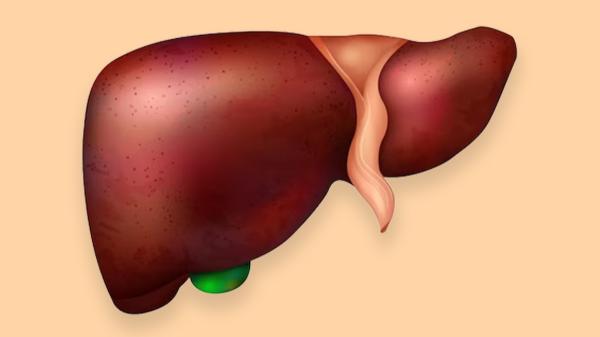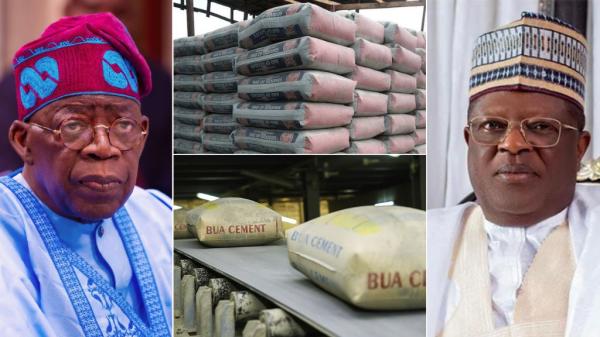
Coronavirus, also known as Covid-19, has infected the world and its systems. The social, economic, political and religious lives of the people are changing faster than ever imagined. Hundreds of lives are lost each day, and more than half of the world’s 7.8 billion people are staying at home—in forced holiday.
Amid the on-going tragedies in the world, the role of manufacturers in a coronavirus season cannot be too stressed.
In Africa’s most populous country, millions of citizens are vulnerable to the deadly disease owing to the poor state of the healthcare system. The hospitals are poorly-equipped to handle even the simplest of diseases.
The hypocritical ruling elite are more interested in treating themselves in the United Kingdom and the United States than in fixing the broken hospitals and primary health centres, especially those in rural communities. Consequently, the hapless and helpless poor citizens rely on God, religious leaders and herbal medicines to stay alive.
But the manufacturing sector is often an unsung hero in a period like this. It sustains the people by producing food and some of the items needed to prevent the spread of the disease. However, Nigeria’s pharmaceutical industry has failed to produce surgical and face masks needed to save lives in case of an explosive spread of the disease among the population. This may be attributed to long years of neglect of that industry.
For example, there are fewer than 150 local pharmaceutical firms in Nigeria, excluding global brands with mere offices in Nigeria. Data are hard to get in Nigeria, but information from the Pharmaceutical Manufacturers Group of the Manufacturers Association of Nigeria (PMG-MAN) shows that these companies have invested less than N500 billion in recent times— which is less than $1.5 billion.
The country’s pharmaceutical market is expected to expand in value from $29.4 billion in 2014 to $48 billion this year, according to research and consulting firm GlobalData.
The South American country recorded total retail pharmaceutical sales of $25.8 billion in 2011; $18.3 billion represented prescription drugs and $7.5 billion over the counter, according to a study by Scrip Insights. From 2007 to 2011, retail drug sales increased by 82.2 percent, according to a study performed by PwC.
There are statistics from the Brazilian pharmaceutical industry that will embarrass Nigeria, which has even failed to save some of its drug firms from going under.
Over the years, Evans, May& Baker, Chi Limited, Swiss Pharma, and Fidson, among others, have invested billions to acquire the World Health Organisation (WHO)’s prequalification. This certification enables firms to take part in international bids and compete favourably in the global market. It is sought-after by all pharmaceutical companies across the world. By 2015, three pharmaceutical firms in Nigeria had got the prequalification.
The first was Swiss Pharma, which eventually sold its assets to Biogaran-Servier in March 2017. Those familiar with the company before its exit said the sale to the French company was based on financial crisis.
Next were Evans Medical Plc and Chi Limited. But Evans was taken over by the defunct Skye Bank and the tier-one First Bank in 2017.
The drug maker had invested hugely on the road to acquiring the sought-after WHO’s prequalification.
But the dream of consolidating its international presence became a mirage as the bankers came for the jugular after a July 4, 2017 court order necessitated by loan default.
The pharmaceutical industry generally is hard hit by a number of factors. One is lack of funding, which has exposed the likes of Evans Medicals to humongous debts it could not repay. Apart from funding, the industry is also hurt by high production cost, which makes its drugs more expensive than imported ones. Cost of production occupies 30 to 40 percent of their expenditure as the firms spend a lot on energy, water, research and development as well as raw materials. Most of the raw materials used by these drug makers are imported because Africa’s most biggest economy does not have a strong petrochemical industry that should produce resins and excipients.
“We have the capacity to produce all these items, but we are not manufacturing them because it is uninteresting and unprofitable to do so,” Fidelis Ayabae, chairman, PMG-MAN and Fidson Healthcare plc, said.
“The economy is open to all kinds of imported products which will make local products expensive,” he further said.
In spite of this, many manufacturers have stepped up to mitigate the impact of coronavirus on Nigerians. Cybele Cosmetics, Jopan Pharmaceuticals, Shulanphil and many others have ramped up the production of hand sanitizers.
The food sub-sector is providing succour to a number of families staying at home. From Flour Mills’ Golden Penny Pasta to Dufil’s Indomie noodles, down to PZ Wilmar’s vegetable oil, families are being supported by manufacturers in many ways.
With borders and airports shut across the world, many families could have struggled to cope with the stay-at-home order without food on their table.
The Manufacturers Association of Nigeria (MAN) believes the current situation shows why the sector must be supported by policies and patronage.
Moreover, auto companies across the world are figuring out ways of producing ventilators to save the lives of coronavirus, patients.
In the United States of America, President Donald Trump has ordered General Motors Co. to sharply ramp up the production of ventilators to treat coronavirus patients.
Recently, Innoson, an auto maker, said it was ready to produce ventilators to save the lives of people suffering from Covid-19.
“Innoson Motors is ready to assist the government in any way we can, including the likability of converting out lines to produce ventilators and other equipment,” Cornel Osigwe, company’s spokesperson, told Premium Times on March 24, citing his discussion with Innocent Chukwuma, the group’s chairman, on the matter.
“But we need the government or other health institutions to place orders on the quantity that may be required before we could take any step,” Osigwe further said.
With this kind of commitment by Innoson, a serious government should have followed up on this statement by taking the company to task. But nothing concrete has happened so far. Big countries such as the United States, the United Kingdom, Italy and Span are struggling with shortages of ventilators, and should there be any explosive spread of the virus in Nigeria the doctors won’t cope.
The world will not experience coronavirus forever, but the situation calls for the need to support local manufacturers. Many manufacturers are hard hit by multiplicity of taxes and a lot of them are cash-strapped.
The Apapa and Tin Can ports are not supporting manufacturers owing to congestion and delays. About 5,000 trucks seek access to Apapa and Tin Can ports in Lagos every day, according to a 2018 maritime report done by the Lagos Chamber of Commerce and Industry (LCCI).
Manufacturers spend as much as N700,000 to move containers from the ports to Ikeja within Lagos. This hikes production costs and reduces competitiveness.
Okey Akpa, chief executive of Lagos-based SKG Pharma, stresses the need for Nigeria to begin to take sensitive industries like pharmaceuticals seriously. He argues that such sub-sectors are critical for national security in times like this.
Ike Ibeabuchi, a manufacturer of chemicals, believes that Nigeria must learn lessons from this period and understand that over-reliance on importation is not sustainable.
Ayabae of Fidson points out that the situation at the moment shows that nobody cares for anybody. He says Nigeria must protect its local industries from unbridled importation of cheap items that often de-market local manufacturers.
Other manufacturers BusinessDay say the post-Coronavirus economy should focus on making made-in-Nigeria products more competitive in the local and global markets.






















